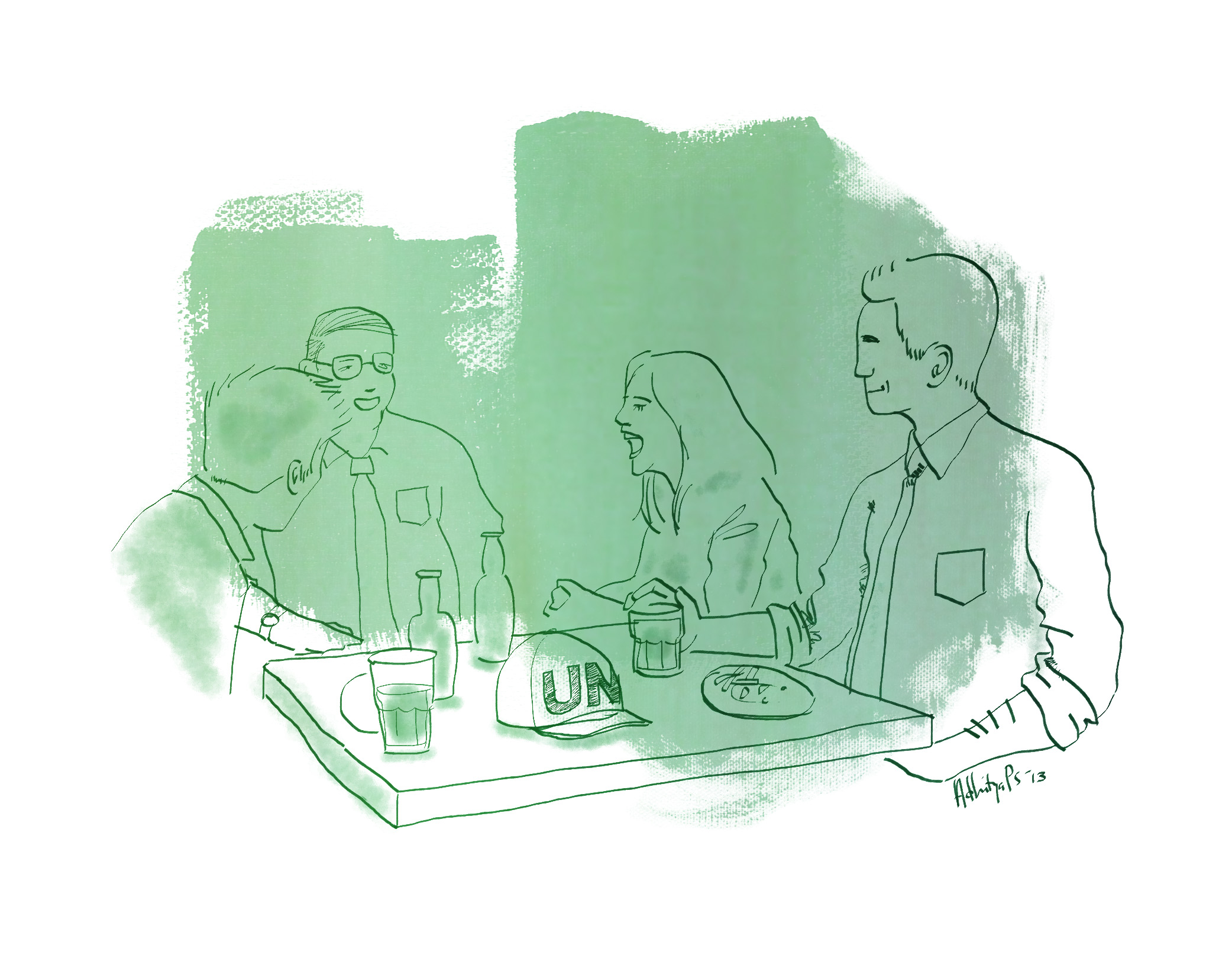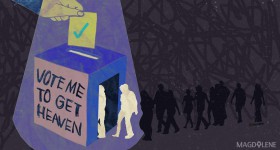OffThis writing came as a reaction from the sexist AC wars debates. According to the narrative from the western hemisphere media, thermostats in centralized air conditioned office place caters to men, leaving many women freezing in their desk or having to wrapped themselves up in jumpers or scarves.
But I, too, have a story on a different kind of gender comfort disparity in the office space. And it has something to do with the clothes we wear. It happened in this company, a global travel chain, I had just joined about a month ago.
During the interview session, I had asked my future Human Resources supervisor twice what the office dress code was. The answer was “smart casual.” From Monday to Friday you can wear “formal or not-so-strict office attire”, and on Friday you can wear casual. This might be the same rule in most companies in Jakarta’s business districts. I even asked the flexibility of hair color, to which the answer was: “it’s cool, as long the color was not too shocking.”
As a newbie, I wore a very formal attire in the first two weeks, until a colleague who was also a graduate of my university remarked: “You look like a teacher now, too tidy and stiff. Where is the sassy unicorn boy I used to know?”
After that, the experiments started. From my friend’s comment, you get the gist that I am not an ordinary male employee. Yes, I am what people may call a metrosexual guy. But more than that, I have the nature of queer identity, the unicorn, the diva who wants all eye on them. I observed my female colleagues first. They wore blouses, one-piece dress, baby doll, Sabrina neck sweaters, and sometime even leggings and flat shoes. From thence I proceeded.
I started with batik. You don’t tuck in a batik shirt, but you still look pretty formal. After that, I begin to explore the smart casual look more. From khaki and ankle pants to mint-colored pants and black denim combined with sneakers – no one complained or expressed disapproval.
Then one day last week I took half a day leave to take care of some paper works. The day before I had seen an Indian expat wearing denim tops and still looking formal. So I decided to wear my jeans with that shirt. “I will only spend four and half hour at the office anyway,” I thought.
Around lunch time I returned to the office, greeted by my supervisor who asked me how the paper work process went. She then took one look at my pants and asked: “You bring your formal pants with you, no? Oh my God! You should not wear jeans unless it’s Friday. You must not leave your cubicle until you go home!”.
I was shocked; my super kind supervisor freaked because of my jeans. The rest of the day I was pretty much bound to my cubicle, not even dared to walk to the pantry to have my lunch. While eating kwetiau in my cubicle I read up on the office regulation and found “formal” and “Friday casual” as its dress code. I also found out that women’s clothing regulation is looser for those who work in departments that do not meet clients.
I sat in my cubicle reading my training material, fearing someone from the HR Department would walk by and catch me in my jeans. I tried to hold off from going to the bathroom until 5 p.m. came, but my bladder felt like it was about to burst. So I brought a scarf to cover up my jeans as I made my way to the toilet stealthily. Fortunately, my path was smooth and I passed no one at the halfway. Still, it was a traumatic experience – the price for my attempt to explore the boundary of “smart casual.” It wasn’t worth the risk.
So, back to the comfort disparity between the genders: at least women have the option and freedom of fashion expression, which is something your male counterparts don’t have. For metrosexual men who want to look nice, the only option is styling their hair with pomade, or spending a lot on tailor-made batik, or alternating grey and khaki with their black pants. While women object to turning into popsicles because of the sexist centralized air conditioning system, at least they still have the choice to not wear short skirt.
As I made my way home, waiting for the elevator in dread of being called out, I witnessed bitterly the double standard of office dress code: a female coworker in sleeveless blouse, thin legging, and wedges was chatting happily with her mate. What does it take for people to impose a semi-formal dress code across genders?
So women, you are not alone in feeling the gender comfort disparity at the office. Men are subjected to it too – at least some men.







Comments